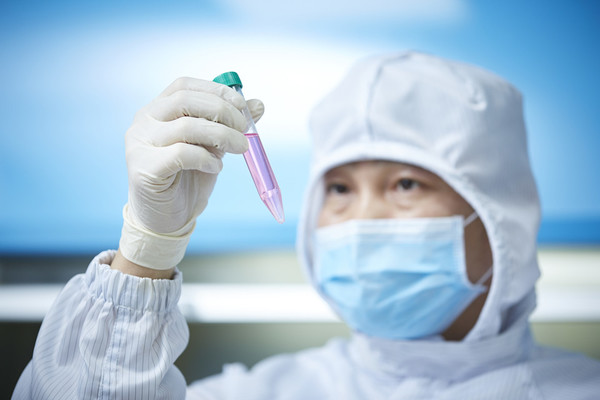Pharmicell said four seriously ill Covid-19 patients recovered after receiving its allogeneic mesenchymal stem cell therapy, Cellgram-AKI, over the past year.
The company said it would continue working on the investigational drug to treat Covid-19.
Pharmicell initially developed Cellgram-AKI as a stem cell treatment for acute kidney disease. However, the company thought the experimental drug’s anti-inflammatory effect could prevent cytokine storm-related symptoms from worsening in Covid-19 patients.
In March last year, Pharmicell obtained the regulatory approval for Cellgram-AKI to treat severe pneumonia in Covid-19 patients for therapeutic purposes only. The company aimed to treat 10 patients with its stem cell therapy.
Hospitals have used Cellgram-AKI in five Covid-19 cases so far. From the end of March to early April in 2020, two patients at Wonju Severance Christian Hospital and one patient at Eunpyeong St. Mary’s Hospital received the treatment. Among them, one died, and the two were discharged after full recovery.

About one year later, a patient at Severance Hospital and another at Eunpyeong St. Mary’s Hospital received Cellgram-AKI in early February. After the therapy, both tested negative in the polymerase chain reaction (PCR) test.
Pharmicell said the two patients recently treated with Cellgram-AKI had been in serious conditions. Because they suffered from hypoxia with acute respiratory distress syndrome (ARDS), they had to receive tracheal intubation and mechanical ventilation. However, only one dose of Cellgram-AKI helped them recover, and they are now in a stable state, Pharmicell said.
As mesenchymal stem cells regenerate cells and regulate immunity to produce a strong anti-inflammatory effect throughout the body, they can help patients with significantly impaired lung function during the long-term stay in the intensive care unit (ICU) or those with multiple organ failure, the company emphasized.
The use of Cellgram-AKI in clinical care is noticeable because it was allowed for treating two or more patients, as opposed to Celltrion’s Covid-19 antibody treatment Regkirona (ingredient: regdanvimab) or GC Pharma’s plasma therapy GC5131A allowed only for individual cases.
For compassionate use for individual patients, physicians apply for the use of the investigational drug with the Ministry of Food and Drug Safety.
However, for use for two or more patients, the pharmaceutical company seeks MFDS’ approval. If a doctor wants to use the drug afterward, he or she can receive the nod from the hospital’s institutional review board (IRB).
Upon request by a physician, Pharmicell promptly sends documents required for IRB’s approval to provide Cellgram-AKI for a patient, the company said.
However, Pharmicell noted that it would not conduct clinical trials of Cellgram-AKI for Covid-19 indication.
“CEO Kim Hyun-soo and other executives are willing to support Covid-19 treatment,” an official at Pharmicell said. “Considering various issues such as economic feasibility and time spent in clinical trials, we will provide the therapy for patients through compassionate use for free.”
Industry watchers pay attention to what Pharmicell will do next when it has only one month left to provide Cellgram-AKI for therapeutic purposes. The 12-month approval for compassionate use of Pharmicell, given in March last year, expires in March.
To keep supplying Cellgram-AKI for Covid-19 treatment, Pharmicell has to submit data on the safety and efficacy to the MFDS in April and obtain the permit for therapeutic purposes.
“We have not decided whether to seek approval again,” the Pharmicell official said. “But we will do our best for the supply of Cellgram-AKI.”

